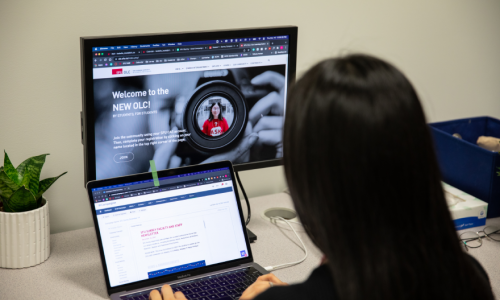
Like many undergraduate students, I had the opportunity to work as a co-op student while receiving my education. Most recently, I had the opportunity to take an 8-month co-op at FISPAN, a fintech start up in Vancouver, and turn it into a part time gig when I go back to school to finish my degree. Working at a start-up means things change every day and I’ve been lucky enough to see FISPAN grow beyond my expectations in my last 8 months. Keep reading for my top tips on turning a Co-op internship into a part time (or even full time) job!
1. Say Yes, and Then Say Yes Again
Employers know they are hiring a co-op student and don’t expect you to come in 5 years of experience and industry knowledge. But in order to be a valuable co-op student, you will need to jump into the deep end. Often, co-op students can get stuck with administrative work, taking notes or doing the things that no one else want to do. This results in a less valuable experience for your employer, and a boring co-op for you.
In order to make yourself stand out, you need to do more than what any other co-op student would actually do. Ask to be put on projects that interest you, learn from more experienced people on your team, and ask questions about your task, the project, and the company.
During my co-op term at FISPAN, I was able to bounce in and out of different teams, projects and portfolios which resulted in me learning about the strengths and weaknesses of other teams and the top priorities of the organization. By the time I got to pitching myself for part time, I already had a good understanding of how and where I could add value.
2. Be a Sponge
You can’t learn if you aren’t in the room. When you are new to an organization you want to observe what is going on around you, pay attention to what’s relevant and how decisions get made. Soak up as much information as possible and keep it in your back pocket. Eventually you’ll be able to see patterns, understand the inner workings and pipe up when you have an opinion. This is by no means easy, and students or junior level employees have a tendency to say nothing instead of risking being wrong. When I start to feel intimidated, I remind myself that the people who are the most successful and happy in their career are probably wrong and experience failure on a daily basis. Why? Because they are always challenging themselves to break outside their comfort zone, which is known to lead to success in the workplace.
3. Understand the Culture and Embrace the Vision
Working at FISPAN has been an incredible experience, and the team culture that accompanies it was the cherry on top. Due to COVID-19 and working remotely, you can’t grab coffee with a co-worker or stop by someone’s desk to chat. Because of this, I took matters into my own hands to learn about why FISPAN was created, where we are going, and what our guiding principles are. It can be very easy to get lost in the day-to-day work but having an understanding of the company ethos has given me an appreciation for the work the team does on a daily basis.
My number one tip is to look outside of the material culture builders such as free coffee and happy hour. I found that listening to podcasts or events the FISPAN leadership team spoke at, reading news articles about the industry, and being a fly on the wall during high level, strategic conversations wherever possible has given me a deeper understanding of why we are here. This knowledge came in handy when I was writing my own job description and pitching for part time because I knew where I could add value and how that would contribute to the company’s long-term goals.
4. Find a Mentor
I was lucky enough to work with multiple leaders across diverse disciplines, backgrounds and management styles. Through these experiences, I’m happy to say that I’ve found many mentors whom I go to for advice when handling a difficult work situation, ask for feedback on current projects I’ve been on and seek their knowledge as I plan my career post-graduation. When I started my co-op, I was not clued in enough to know how to actively search this out, but once I became more comfortable with the team it came more naturally to me.
My advice is to start with your direct manager, or even a co-worker and then build up to other teams with time. And keep in mind that most people are happy to chat about their experiences and provide advice, but you need to be the one to initiate it.
5. Pitch Yourself!
Towards the end of my co-op term (May-December 2020), FISPAN working on their goals and strategic plan for the 2021 year. I learned that one of FISPAN's goals for 2021 aligned really well with what I was working on already and what I was interested in. From there, I spoke to my direct managers to learn more about this goal and what was needed and set up a quick 30-minute pitch to move from co-op to part time. After that, I received my extension to part time! Every organization will have a different way of going about these types of things, but meeting with my managers was key because when I went to pitch, I already had their support.
For other co-op students looking to work part time, I encourage them to dig into the higher level strategic objectives of their company or team and break it down into smaller areas of improvement that could use your involvement. I was able to identify a large blocker and pain point in a daily activity FISPAN does that would hinder our ability to reach a key goal for the 2021 year. Fixing that issue has become one of my main tasks when working part time.
6. Fake It Till You Make It
You’ve likely had someone tell you to “dress for the job you want, not the job you have”.
Now that is a bit more difficult when you work from home, but the advice still stands on a much deeper level. When you join a new organization as a student, don’t treat yourself like a student. Instead, treat yourself like a young professional. Hold yourself to the same standard of professionalism, integrity and responsibility you would expect from your manager, team lead or someone else you admire.














